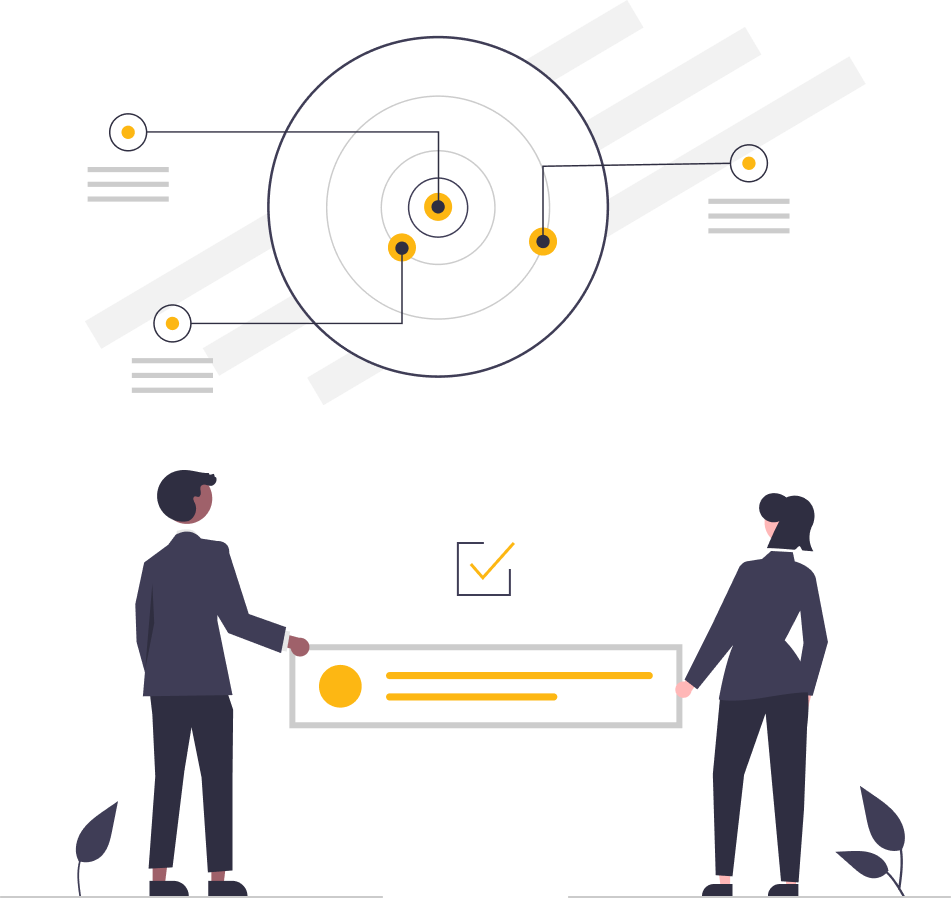Table of Contents
B2B Involves Complex Decision-Making
There are a few very significant differences between B2B and B2C copywriting—which makes sense since they speak to different audiences and have different end goals. That being said, I think my favorite topic when it comes to this is the audience’s or consumer’s decision-making process.
B2B copywriting and decision-making often involve multiple stakeholders, longer or more complex processes, and the focus will be on demonstrating value when it comes to ROI. This requires detailed copy that is data-driven, formal, and speaks to multiple individuals while still emphasizing industry expertise to build credibility.
B2C decision-making is often quicker and more emotional, driven by personal preferences and immediate benefits. This copywriting uses a less formal tone, much more engaging storytelling, and can utilize emotional appeals to connect directly with consumers on a more personal level. I am more emotional about the food my dog eats than the CRM my dog-walking company uses.
Gregory Bieger, Marketing Director, Hello Human Media
Different Audience Decision Processes
One significant difference between B2B and B2C copywriting lies in the audience and their decision-making process. B2B copywriting targets business professionals who make decisions based on logic, ROI, and long-term benefits, requiring a more formal and informative tone. It often emphasizes data, case studies, and industry expertise to build trust and demonstrate value.
In contrast, B2C copywriting targets individual consumers, focusing on emotional appeal, immediate benefits, and personal gratification. The tone is generally more conversational and engaging, aiming to capture attention quickly and inspire impulsive decisions.
Understanding these differences is crucial for tailoring the message to effectively reach and resonate with each audience type.
Jay Moar, Content Writer, moarwords.com

B2B Requires Convincing Stakeholders
The biggest difference is probably the decision threshold for the audience. When writing B2C, you are most likely talking to the person who is going to make a decision for themselves, or their family, with minimal input.
In B2B, you are most likely (though obviously not always) writing for someone who has to convince the people who write the checks that your product or service is good. They are putting themselves on the line, in a way. So it’s vital to not just promote your service, but to give your audience the tools and information they need to sell upwards, and to feel confident they are making the right decision. B2C is about helping someone make the right choice; B2B is more of an unspoken partnership.
Brian ONeill, Senior Conversion Copywriter, Orbit Media Studios
Depth of Information Varies
One key difference between B2B and B2C copywriting is in the depth of information. B2B copywriting ensures detailed information, including technical details and industry terms, to capture complex business needs and appeal to professional judgment. B2C copywriting, on the other hand, is driven by an emphasis on emotional appeal and simplicity with the goal of quickly grabbing attention, connecting at a personal level by telling stories, and delivering an engaging message.
Azam Mohamed Nisamdeen, Founder, Convert Chat

Human Essence in Copywriting
Ah, the eternal dance of B2B and B2C—as if humans shed their essence upon entering their office cubicles! The supposed chasm between these realms is but a comforting illusion, a lullaby marketers sing to themselves in the dark. In truth, all copywriting should speak to the human animal—an animal driven by desires, fears, and the relentless pursuit of power.
The “rational” B2B buyer is as much a myth as the purely emotional consumer. Both crave status; both fear obsolescence. The task of a copywriter is not to distinguish between fictitious categories, but to pierce the veil of professional pretense and speak to the trembling primate beneath the business suit or T-shirt.
That’s what you focus on to craft messages that resonate. Not imaginary divides.
Justin Oberman, Co-Founder, Genius Scouts





























